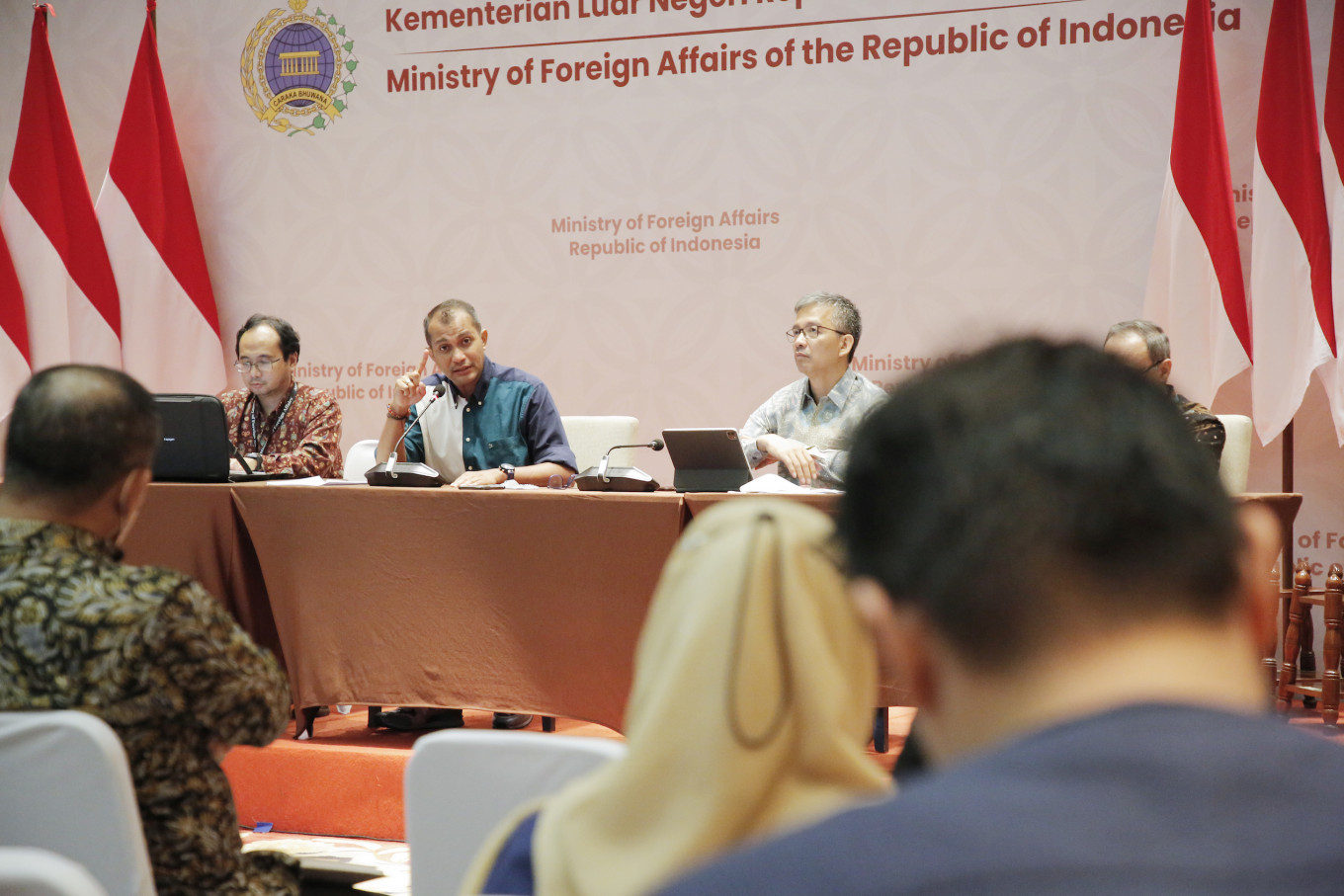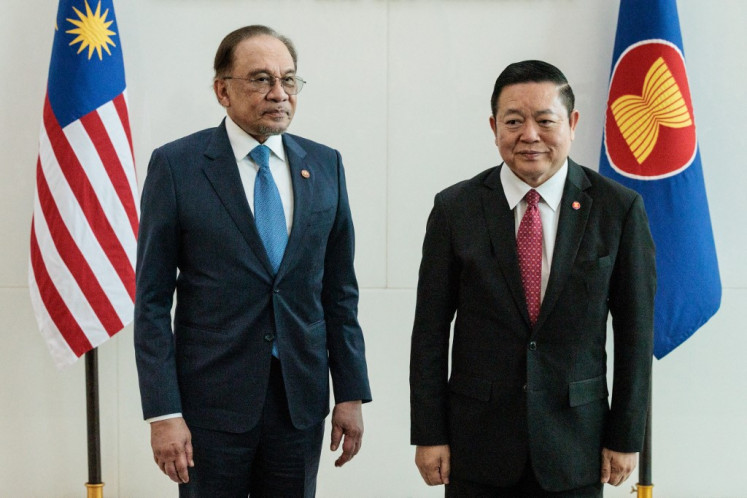Popular Reads
Top Results
Can't find what you're looking for?
View all search resultsPopular Reads
Top Results
Can't find what you're looking for?
View all search results‘Win-win for all’: Govt mounts defense of Criminal Code
“The world would come to an end long before we could please all 270 million people in the country,” said Deputy Law and Human Rights Minister Edward OS Hiariej on extending public consultations for the penal code.
Change text size
Gift Premium Articles
to Anyone
S
eeking to rebut emerging criticism that the revised Criminal Code (KUHP) had been insufficiently prepared to reflect the people’s aspirations, Deputy Law and Human Rights Minister Edward OS Hiariej on Monday claimed that the penal code had achieved a “win-win” solution for bridging differences between the nation’s religious conservatives and liberals.
Not only had the KUHP seized Indonesia’s primary goal of decolonizing its laws, Edward said, it had also found a legislative middle path to reconcile the nation’s vast cultural differences. Concerns over the narrowing of personal autonomy were therefore unfounded, he asserted, especially with regard to foreign investors and tourists thinking twice before paying the country a visit.
“The KUHP has been drafted with meticulous attention. At the core of the deliberations was striking a balance between the state’s and the people’s interests, all within the context of a multiethnic, multi-religious and multicultural society,” he said at a Foreign Ministry press conference.
“We took a win-win path; the Indonesian way. [...] By right, [the KUHP] should not disturb the interests of the people or of business, including tourists and foreign investors.”
The government has been on the back foot ever since the House of Representatives passed the revamped penal code last week. Amid surprise and growing disapproval, officials at various levels of government have sought to limit the fallout from potential visitors and investors alike.
Bali Governor I Wayan Koster said in a Sunday statement that tourists need not worry about the new Criminal Code, reaffirming that their privacy would still be held in high regard and that no establishments would be authorized to carry out background checks on their marital status.
“[The news] that there have been flight and hotel room booking cancellations are all hoaxes [...] All parties are advised to be wise and not deliver any misleading statement that would muddy the situation [...] because it may disrupt Bali’s tourism,” he wrote.
The statements made by some international actors criticizing the penal code were ill-informed, said Foreign Ministry spokesperson Teuku Faizasyah, alluding to the United Nations’ response published on Thursday.
For choosing to criticize the government through the press instead of via diplomatic channels, Faizasyah said that the ministry had summoned the UN’s representative to Indonesia, Valerie Julliand, for accountability on Monday morning.
“They should have come to consult, just as other international representatives do. We hope that they do not hastily publicize their views through the press to convey something unconfirmed,” the official asserted.
While the UN had offered assistance to weigh in on parts of the penal code, especially clauses concerning freedom of expression and personal autonomy, Edward said it had come with the offer a little too late on Nov. 25, just a day after the House decided to finalize the legislative process. That the approval came through, he claimed, is proof that the people’s aspirations were reflected in the penal code.
‘Weak argument’
The assertion that the KUHP has succeeded in maintaining a balance among interests has not been entirely convincing, with human rights experts and civil society groups doubtful that the public interest was even properly considered.
For one thing, declining the UN offer because it was a day late was a “weak argument” at best, critics proclaimed.
“The government has had a long relationship with the UN, and in many opportunities, the UN has offered its international assistance. [...] Such offers have never been accepted by the government,” said Usman Hamid, executive director of Amnesty International Indonesia.
There was no reason for the government to pass the bill without having received all manner of input. “Consultations should have been extended to truly make it a meaningful process,” he suggested.
Before and after the penal code’s overhaul was passed, a number of nongovernment organizations criticized the lack of meaningful dialogue, especially with lawmakers reluctant to ensure the drafting process was transparent.
The Indonesian Press Council said last Wednesday in a statement that many of its suggestions had not been taken into consideration, resulting in provisions that were potentially detrimental to the country’s democracy.
But Edward brushed off what he regarded as councils of perfection.
“The world would come to an end long before we could please all 270 million people in the country,” he said.










